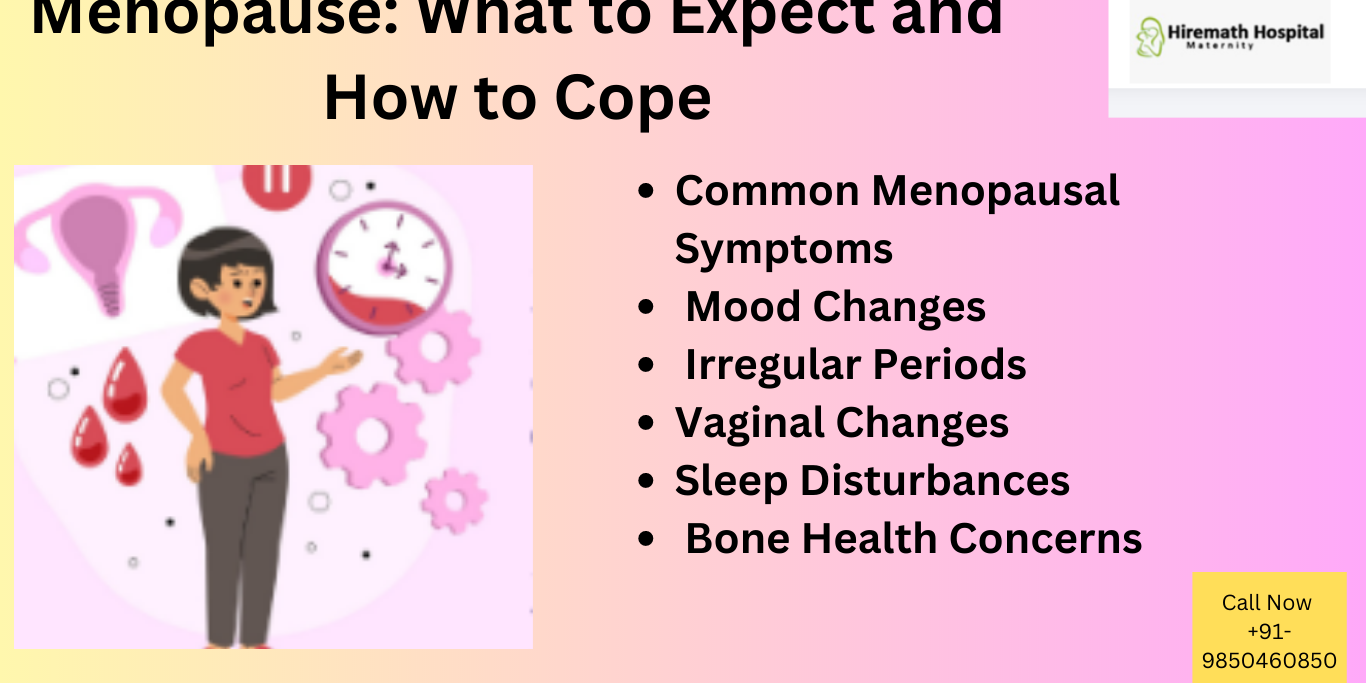Introduction
Menopause is a natural and inevitable phase in every woman’s life, marking the end of reproductive years. While it signifies the cessation of menstrual cycles, it brings about a range of physical and emotional changes that can sometimes be challenging to navigate. Understanding what to expect during menopause and discovering effective coping strategies can empower women to embrace this new chapter with confidence and grace.
The Menopausal Transition
Menopause is defined as the point in time when a woman has not had a menstrual period for 12 consecutive months. However, the transition leading up to menopause, known as perimenopause, can span several years and involve hormonal fluctuations that result in various symptoms.
Common Menopausal Symptoms
1. Hot Flashes and Night Sweats: Sudden waves of heat and sweating, often accompanied by flushing, are hallmark symptoms of menopause.
2. Mood Changes: Hormonal shifts can lead to mood swings, irritability, and increased susceptibility to anxiety and depression.
3. Irregular Periods: During perimenopause, menstrual cycles can become irregular before eventually ceasing altogether.
4. Vaginal Changes: Reduced estrogen levels can cause vaginal dryness, discomfort during intercourse, and an increased risk of urinary tract infections.
5. Sleep Disturbances: Night sweats and hormonal changes can disrupt sleep patterns, leading to insomnia or poor sleep quality.
6. Bone Health Concerns: Decreased estrogen levels can affect bone density, potentially leading to osteoporosis.
Coping Strategies for Menopause
1. Healthy Lifestyle Choices: Adopting a balanced diet rich in calcium and vitamin D, staying physically active, and avoiding smoking and excessive alcohol consumption can promote overall well-being during menopause.
2. Mind-Body Practices: Engaging in stress-reducing activities like yoga, meditation, and deep breathing can help manage mood swings and anxiety.
3. Hormone Replacement Therapy (HRT): For women with severe symptoms, HRT can be considered under medical supervision to alleviate hot flashes, vaginal dryness, and bone health concerns.
4. Medications: Antidepressants or medications specifically designed to target hot flashes and mood changes can be prescribed by healthcare professionals.
5. Vaginal Lubricants and Moisturizers: Over-the-counter or prescription products can help alleviate vaginal dryness and discomfort.
6. Open Communication: Talking to healthcare providers, friends, and family about the challenges of menopause can provide valuable support and advice.
Embracing Menopause as a New Chapter
Menopause marks the end of one phase and the beginning of another. Instead of viewing it solely as a time of physical changes, consider it an opportunity for personal growth and empowerment. With children grown and other responsibilities potentially reduced, many women find themselves exploring new hobbies, passions, and opportunities.
Conclusion
Menopause is a natural and transformative journey that each woman experiences uniquely. While it may come with its share of challenges, it’s essential to remember that menopause is just another chapter in the book of life. By understanding the symptoms, seeking appropriate medical guidance, and embracing positive coping strategies, women can navigate this transition with resilience and grace. Menopause is not an end, but rather a new beginning – a chance to embrace the wisdom that comes with age and to celebrate the vitality that continues to shine brightly.







